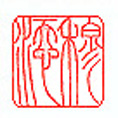— go back one page
— go back to list of extracts
— skip to next extract

‘Meanwhile,’ I turned to Lalagē, ‘take one of those blades, whetting it as necessary on this whetstone, and shave off all Philodemus’s body hair as best you can. That includes his head and his pubic hair, though you need not bother too much about the light hair on his arms and legs. When that’s done, smear him all over with that pigment mixed with the fresh water in the pot. The oil runs off it. Do this as carefully but as quickly as you can. ‘When it’s done, Philodemus, assuming that no one has come to our help by then, dive from the prow of the trireme with a steep rather than a shallow dive; then try to swim sideways under water counting to at least one hundred. Keep that rag tightly in your hand,’ I pointed to a small clean rag lying near the pigment, ‘from before the dive, so that it cannot get oil on it. When you come to the surface, use the rag to wipe your eyes and the area around your eyes thoroughly before opening them. Then bring help! To work!’
And so it went, in a fantastical scene. The high-born Athenian youth, the wayward barbarian girl, the slave with his wounded dignity, the itinerant teacher of mixed parentage, and mixed reputation. The drifting trireme painfully edged forward by planks for oars. The girl carefully shaving a young man with a carpenter’s tool in the lurid light of the flames — head, armpits, pubis. A pall of acrid smoke moved by no breeze, and barely disturbed by the snail’s motion of the boat, rising into the sky with confused reflections of the water-borne flames. A strange ritual of beating the bounds, as it might have seemed to a mid-air spectator. All done in silence, like a ceremony for an unknown god. And as sacrifice in the end, a naked victim, hairless and daubed all over with streaks of red and white pigment, plunges into the flaming sea.
(3/3)